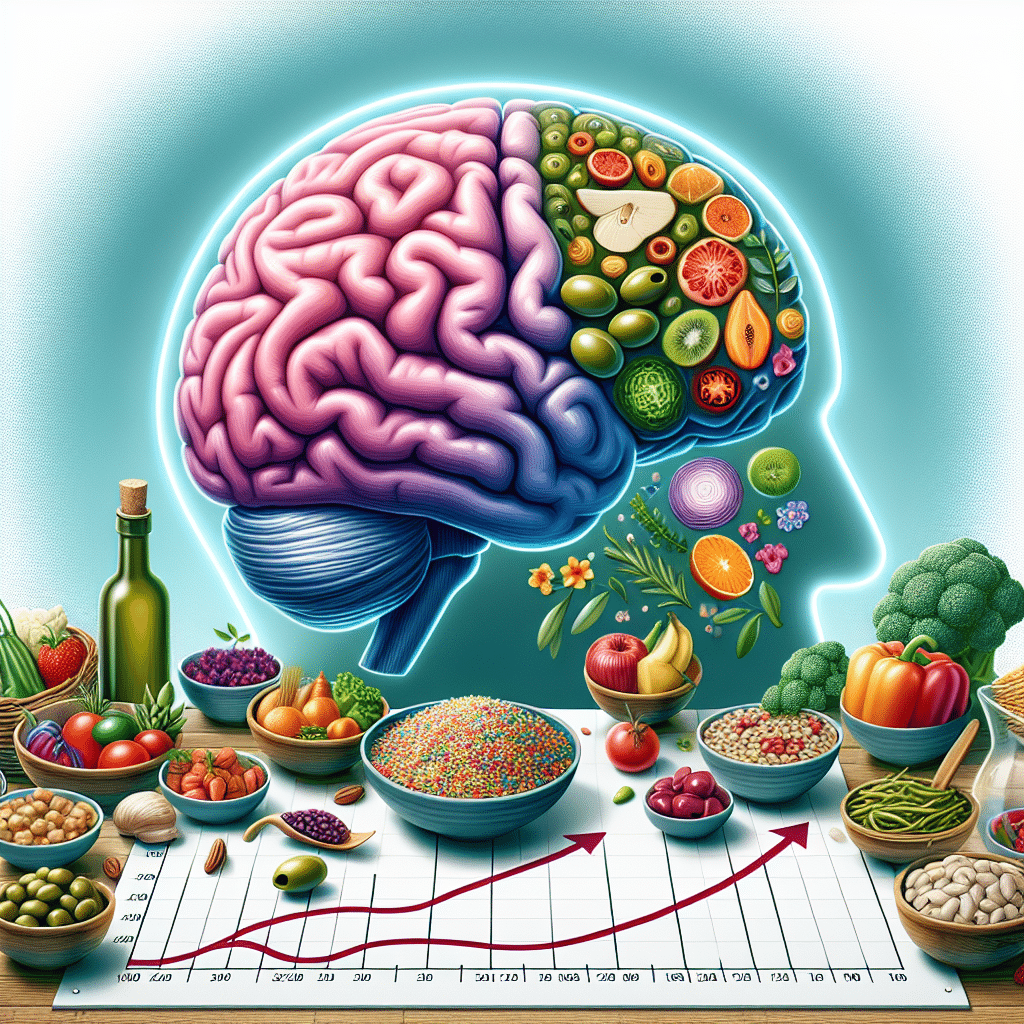Mediterranean Diet May Help Retain Brain Volume As We Age
-
Table of Contents
- Mediterranean Diet: A Key to Preserving Brain Volume in Aging
- Understanding the Mediterranean Diet
- The Link Between Mediterranean Diet and Brain Volume
- Research Findings on Diet and Brain Health
- Case Studies and Examples
- Statistics Supporting the Mediterranean Diet’s Benefits
- Conclusion: Embracing the Mediterranean Diet for Brain Health
- Recommended ETprotein Products for a Healthy Diet
Mediterranean Diet: A Key to Preserving Brain Volume in Aging

The quest for maintaining cognitive health as we age is a prevalent concern in today’s society. With an aging population and the rise of neurodegenerative diseases, individuals and researchers alike are seeking lifestyle choices that can mitigate the effects of aging on the brain. One such lifestyle factor that has garnered significant attention is diet, particularly the Mediterranean diet. This article delves into how adopting a Mediterranean diet may help retain brain volume as we age, supported by scientific research and statistics.
Understanding the Mediterranean Diet
The Mediterranean diet is a heart-healthy eating plan based on the traditional cuisines of Greece, Italy, and other countries that border the Mediterranean Sea. It is characterized by:
- A high intake of vegetables, fruits, whole grains, and legumes
- Moderate consumption of fish, poultry, and dairy (mostly cheese and yogurt)
- Low consumption of red meat and sweets
- Use of olive oil as the primary source of fat
- Occasional consumption of red wine in moderation
This diet has been associated with numerous health benefits, including a lower risk of heart disease, certain cancers, type 2 diabetes, and cognitive decline.
The Link Between Mediterranean Diet and Brain Volume
Recent studies have suggested that the Mediterranean diet may have a protective effect on brain volume. Brain volume is a crucial indicator of brain health, as reductions in brain volume can be associated with cognitive decline and increased risk of dementia.
Research Findings on Diet and Brain Health
Several research studies have explored the relationship between the Mediterranean diet and brain volume. For instance:
- A study published in the journal Neurology found that older adults who followed a Mediterranean diet had a lower rate of brain shrinkage over a three-year period compared to those who did not follow the diet.
- Another study in the journal Alzheimer’s & Dementia reported that adherence to the Mediterranean diet was associated with reduced brain atrophy in individuals with higher genetic risk for Alzheimer’s disease.
- Research in the British Journal of Nutrition highlighted that the Mediterranean diet’s high intake of antioxidants and anti-inflammatory compounds might contribute to the preservation of brain volume by protecting against oxidative stress and inflammation, which are known to affect brain health negatively.
These studies suggest that the Mediterranean diet may help maintain brain volume by providing essential nutrients that support brain structure and function.
Case Studies and Examples
Case studies of individuals and populations that adhere to the Mediterranean diet provide real-world examples of its potential benefits on brain health. For instance, populations in the Mediterranean region have historically exhibited lower rates of neurodegenerative diseases, which some researchers attribute to their dietary patterns.
Individual case studies have also shown that adopting a Mediterranean diet can lead to improvements in cognitive function and a slower rate of cognitive decline, further supporting the diet’s role in brain health maintenance.
Statistics Supporting the Mediterranean Diet’s Benefits
Statistical analysis from various studies reinforces the potential benefits of the Mediterranean diet on brain health. For example:
- One meta-analysis found that individuals with high adherence to the Mediterranean diet had a 33% lower risk of developing Alzheimer’s disease compared to those with low adherence.
- Statistics from population-based studies indicate that the Mediterranean diet is associated with a reduced risk of mild cognitive impairment and a slower progression from mild cognitive impairment to Alzheimer’s disease.
These statistics highlight the significant impact that dietary choices can have on cognitive health and the potential of the Mediterranean diet to serve as a preventive strategy against age-related brain volume loss.
Conclusion: Embracing the Mediterranean Diet for Brain Health
In conclusion, the Mediterranean diet emerges as a promising approach to preserving brain volume and cognitive function as we age. The diet’s emphasis on plant-based foods, healthy fats, and moderate consumption of animal products provides a nutrient-rich profile that supports brain health. By incorporating the Mediterranean diet into daily life, individuals may not only enjoy delicious meals but also contribute to the longevity and vitality of their cognitive abilities.
For those looking to enhance their diet with high-quality protein sources, ETprotein offers a range of organic and vegan protein products that can complement the Mediterranean diet. Their products, including organic rice protein, pea protein, and various seed proteins, provide a neutral taste and are non-GMO and allergen-free, making them an excellent addition to any health-conscious diet.
Recommended ETprotein Products for a Healthy Diet
ETprotein’s offerings are ideal for individuals following the Mediterranean diet who are seeking additional protein sources. Their products are suitable for various industries and can be incorporated into a wide range of recipes and meal plans. By choosing ETprotein, consumers can ensure they are getting high-quality, sustainable protein options that align with their dietary goals and support overall well-being.
About ETprotein:
ETprotein, a reputable protein and L-(+)-Ergothioneine (EGT) Chinese factory manufacturer and supplier, is renowned for producing, stocking, exporting, and delivering the highest quality organic bulk vegan proteins and L-(+)-Ergothioneine. They include Organic rice protein, clear rice protein, pea protein, clear pea protein, watermelon seed protein, pumpkin seed protein, sunflower seed protein, mung bean protein, peanut protein, and L-(+)-Ergothioneine EGT Pharmaceutical grade, L-(+)-Ergothioneine EGT food grade, L-(+)-Ergothioneine EGT cosmetic grade, L-(+)-Ergothioneine EGT reference grade and L-(+)-Ergothioneine EGT standard. Their offerings, characterized by a neutral taste, non-GMO, allergen-free attributes, with L-(+)-Ergothioneine purity over 98%, 99%, cater to a diverse range of industries. They serve nutraceutical, pharmaceutical, cosmeceutical, veterinary, as well as food and beverage finished product distributors, traders, and manufacturers across Europe, USA, Canada, Australia, Thailand, Japan, Korea, Brazil, and Chile, among others.
ETprotein specialization includes exporting and delivering tailor-made protein powder and finished nutritional supplements. Their extensive product range covers sectors like Food and Beverage, Sports Nutrition, Weight Management, Dietary Supplements, Health and Wellness Products, and Infant Formula, ensuring comprehensive solutions to meet all your protein needs.
As a trusted company by leading global food and beverage brands and Fortune 500 companies, ETprotein reinforces China’s reputation in the global arena. For more information or to sample their products, please contact them and email sales(at)ETprotein.com today.












